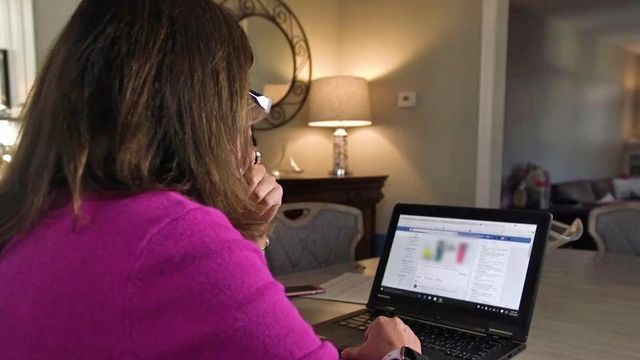Watch for scams while holiday shopping online
The Thanksgiving shopping chaos is already underway, and it can be overwhelming, which is why more people are shopping online.
Posted — UpdatedThe Thanksgiving shopping chaos is already under way, and it can be overwhelming, which is why more people are shopping online.
While shopping online avoids the headaches of traffic and crowds, it can lead to another problem — scams.
The explosion of online shopping created an explosion of online shopping scams, too. Kim Russo found out the hard way.
Russo wanted to give her favorite insulated cups as gifts. After seeing an ad on Facebook in August, she bought nine for $140. But so far, she hasn't received any cups.
"I feel dumb," Russo said. "I definitely feel dumb for sure that I, you know, it's too good to be true."
Consumer Reports warns against buying from websites or people you've never heard of before. If you're looking at a new website, do some research before clicking "buy."
"A good place to start is the Better Business Bureau where you can note any complaints," said Consumer Reports Money Editor Octavio Blanco. "The BBB also says use extreme caution when ordering from a company whose existence can't be verified, as may have been the case with Kim."
Russo said she can't contact the people selling the cups.
"There is no way to get in touch with them, there's no phone number, no mailing address," Russo said.
Also, look for the letters "https" in the URL of the website. The "s" stands for a secure connection, according to Consumer Reports.
The magazine also recommend checking online user reviews. Type the name of the company and the words "review" and "complaint" into a search engine to find what other customers have to say.
"Also, be careful when making purchases on Craigslist or other virtual bulletin boards," Blanco said. "The key to trust here is buy local."
Craigslist advises never sending money to someone you haven't met and to arrange any meetings in a public place. Some local police even have a designated safe zones for these transactions.
Consumer Reports said to be careful with email, too, because some scammers claim they're trying to deliver something for FedEx or the Post Office. The scam emails say you have a package and ask for personal information to enable delivery, but legitimate delivery companies do not ask for that type of information.
• Credits
Copyright 2024 by Capitol Broadcasting Company. All rights reserved. This material may not be published, broadcast, rewritten or redistributed.





